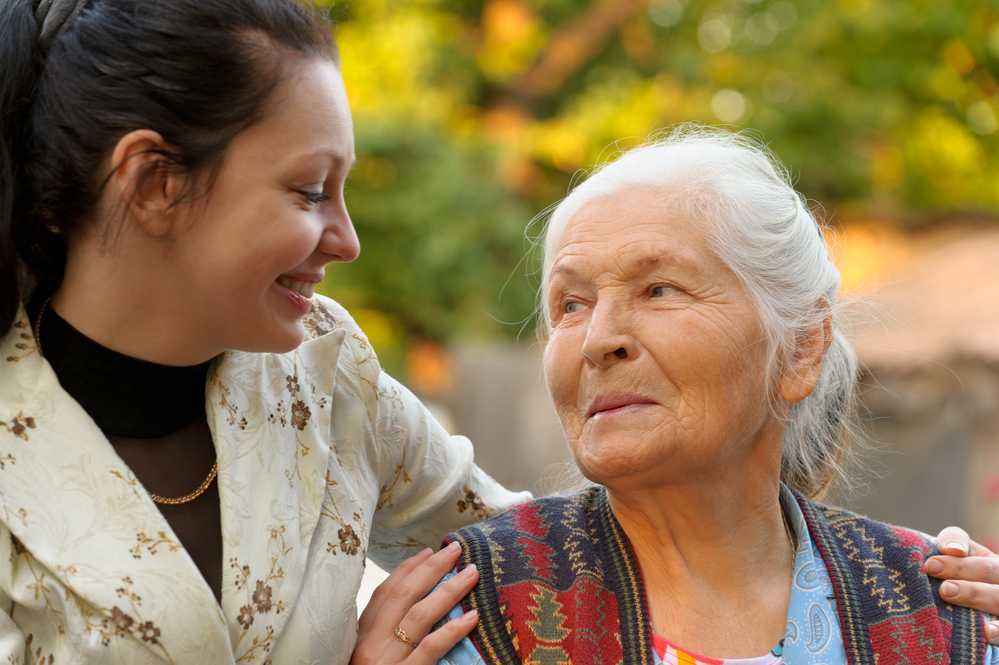
Published on February 10, 2022. Last Updated on October 7, 2025.
As an elder law attorney, I can tell you that in all my years of practice, I have never had a client say, “I want to go to a nursing home.” Almost without exception, older adults tell me they want to remain in their own homes for as long as possible. Home represents independence, comfort, and dignity. For many seniors, it is also the place where they feel most safe and loved.
Unfortunately, staying at home as we age is not always easy. Some families struggle with the idea of bringing outside caregivers into the home. Others face financial or emotional challenges that make caregiving complicated. Yet, the desire to “age in place” — to remain at home with the right support — is a goal worth pursuing.
In this post, I’ll discuss how families can work together to care for loved ones at home, how to legally and financially protect everyone involved, and how caregiver agreements can help ensure that this arrangement benefits both parents and children.
The Value of Family Caregiving
Being a family caregiver is one of the most rewarding experiences a child can provide for a parent. I hear it time and again from clients: caring for a loved one at home brings deep satisfaction and strengthens family bonds. It allows older adults to maintain a sense of independence and a familiar routine while receiving the care they need.
Beyond emotional rewards, caregiving offers practical benefits. Parents often feel more secure and less anxious when cared for by someone they know and trust. Children, in turn, find peace of mind in knowing their parents are well cared for in a familiar environment rather than in an institutional setting.
Still, family caregiving is not without challenges. That’s why proper planning — both legally and financially — is essential.
Why a Caregiver Agreement Is So Important
If a family member is providing care for an aging loved one, a written caregiver agreement — also known as a personal care contract — is a vital legal tool. Here’s why every family should consider putting one in place:
1. Prevent Misunderstandings and Family Conflict
Caregiving can be emotional. Without a written agreement, disagreements can arise among siblings or other family members about who is doing what, how much time is being spent, and whether one person is being treated “more favorably” than others.
A caregiver agreement establishes transparency. It outlines the type of care being provided, the hours worked, and the compensation paid. Everyone knows exactly what to expect, reducing the risk of hurt feelings or resentment later on.
2. Protect Eligibility for Medicaid and VA Benefits
From a legal perspective, helping to protect Medicaid and VA benefit eligibility is perhaps the most important reason to formalize a caregiver arrangement.
When parents pay a child for caregiving without a written contract, Medicaid or the Veterans Administration (VA) may later view those payments as gifts rather than legitimate expenses. That can trigger penalties and delay eligibility for benefits.
However, if a proper caregiver agreement is executed — specifying the duties, payment rate, and schedule — those payments can be considered legitimate spend-down expenses. This allows the parent to fairly compensate the child for their time and care while also preserving or accelerating eligibility for Medicaid and VA benefits.
3. Ensure Proper Tax Reporting
Just as proper documentation protects Medicaid and VA eligibility, accurate tax reporting is equally important. The two go hand in hand. When a family caregiver is compensated, those payments are considered taxable income and must be reported on the caregiver’s tax return. Doing so not only fulfills legal obligations but also reinforces that the payments are legitimate compensation for services provided, not informal gifts.
Keeping clear financial records—such as written agreements, time logs, and proof of payment—makes tax filing easier and helps prevent future confusion or disputes. Accurate tax reporting ensures that everyone involved can demonstrate honesty and accountability, giving both the caregiver and the care recipient peace of mind that everything has been done the right way.
Financial and Emotional Considerations for Family Caregivers
While caregiving at home is a noble and rewarding act, it’s important to be realistic about the impact it can have on the caregiver — both financially and emotionally.
The Financial Trade-Off
Many adult children leave the workforce, reduce hours, or take early retirement to care for a parent. In doing so, they often sacrifice wages and benefits. Even when they are paid through a caregiver agreement, the compensation may not fully replace what they could earn outside the home. That’s why it’s so important to discuss finances openly and to plan carefully.
The Emotional and Physical Toll
Caregiving is demanding. It can be stressful, exhausting, and emotionally draining — especially when the caregiver is balancing a job, raising children, or managing their own health concerns. Over time, caregiver burnout can affect both the caregiver’s well-being and the quality of care provided.
Those responsible for caring for a loved one need to seek respite and support. Adult day programs and community resources can provide this needed relief. Family meetings and counseling can also help address emotional strain and family dynamics before they escalate.
Managing Family Dynamics and Expectations
In many families, tension arises when one child provides most of the care and others are less involved. The caregiving child might feel overburdened or unappreciated. Meanwhile, siblings who are less involved might question financial arrangements or suspect favoritism.
This is where transparency and documentation make a tremendous difference. A well-drafted caregiver agreement clearly explains why one child is being paid — because they are providing legitimate, documented services.
Open family discussions and clear communication can go a long way toward preserving relationships. In many cases, having a neutral professional, such as an elder law attorney, helps guide these conversations and ensures that everyone understands the plan.
Legal Requirements for a Valid Caregiver Agreement
To be recognized by Medicaid and VA authorities, a caregiver agreement must meet specific criteria. While every situation is unique, the following elements are generally required:
- Written Contract: The agreement must be in writing and signed by both the caregiver (child) and the care recipient (parent).
- Detailed Services: The contract should describe the specific services to be provided, such as meal preparation, transportation, bathing assistance, medication management, or companionship.
- Reasonable Compensation: Payment should reflect fair market value for similar services in your geographic area.
- Time Tracking: The caregiver should maintain records of hours worked and tasks completed.
- Payment Schedule: Payments should be made regularly (weekly, biweekly, or monthly) and documented with checks or bank transfers.
- Tax Compliance: The caregiver must report income, and the parent may be required to issue a Form 1099 or W-2, depending on the arrangement.
An elder law attorney can help with drafting a compliant, customized caregiver agreement and ensure it aligns with overall estate and long-term care planning goals.
Integrating Caregiving Into a Broader Long-Term Care Plan
A caregiver agreement should not exist in isolation. It’s part of a larger long-term care strategy that includes:
- VA benefits and Medicaid planning: To ensure access to financial assistance for care costs.
- Powers of attorney and health care directives: To give caregivers legal authority to make decisions when necessary.
- Estate planning: To ensure assets are protected and distributed according to the parent’s wishes.
- Asset protection strategies: To safeguard family wealth while covering care expenses.
By integrating the caregiver agreement into a comprehensive plan, families can maximize resources and avoid costly mistakes.
Get the Support You Need from Bellomo & Associates
Caring for a loved one at home is one of the most meaningful gifts you can give — but it can also be complex, both emotionally and legally. You don’t have to navigate it alone. Our team at Bellomo & Associates is here to help you make informed decisions and create a plan that protects your family’s well-being and financial security.
To those already caring for loved ones at home, thank you for all you do. Your dedication makes an immeasurable difference. And to those considering it, we encourage you to explore your options.
With the right legal guidance and support, keeping your loved one at home may be one of the most rewarding decisions you ever make. Contact Bellomo & Associates today to schedule a consultation and learn how we can help you protect what matters most.


